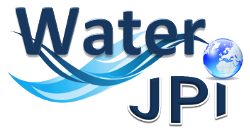Strategic Research and Innovation Agenda - SRIA Development
How was it developed?
The SRIA has been conceived as a participatory, inclusive, shared and forward-looking document that sets out RDI directions and tries to overcome the current fragmentation of the water sector.
The publication of the Water JPI Vision Document in 2011 (endorsed by the Governing Board) triggered a long process of collection and analysis of information as well as of consultations in order to select, refine and prioritize RDI needs.
The publication of the final SRIA (SRIA 2.0), structured around 5 themes and 11 subthemes, results from the development of two preliminary versions of the SRIA (versions 0.5 in 2013 and 1.0 in 2014) that allowed the update of the document (identification of emerging RDI needs, prioritisation according to a changing context and new water RDI trends).
The new updated version of our Strategic Research and Innovation Agenda (version 2.0) is being finalized for approval by the Water JPI Governing Board and will be officially presented in Rome on next 19 May at the final conference of the Coordination and Support Action WatEUr.
Outcomes of Stakeholders Workshops
Two Stakeholder Consultative Workshops were held in April 2014 and October 2015 with the participation of members of the Advisory Boards, the Water JPI and national experts.
These workshops were the occasion for the participants to exchange during plenary sessions and working group parallel sessions as well as during informal moments. The objective was to gather stakeholders’ views on SRIA 1.0 and 2.0 drafts (introduction of new research needs, suggestions of clustering some themes, underlining of some cross cutting issues).
Outcomes of Public Consultations
In line with the participatory approach the Water JPI is based upon, the society at large has been invited to contribute to the identification of RDI needs. To this end, two public consultations have been organized in 2014 and 2015.
Thanks to the communication efforts made by the Water JPI community, a high number of responses were received and the total amount of comments given by business, associations and NGOs, policy and administration was 183 in 2014 and 85 in 2015. A good number of those responses came from research institutes (60% in 2014 and 68% in 2015).
